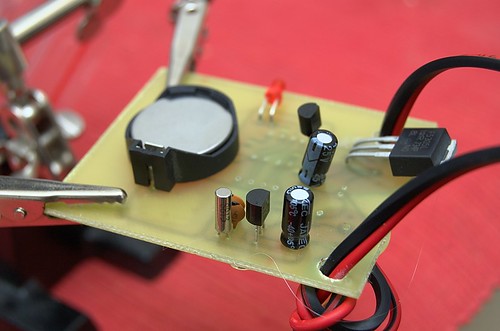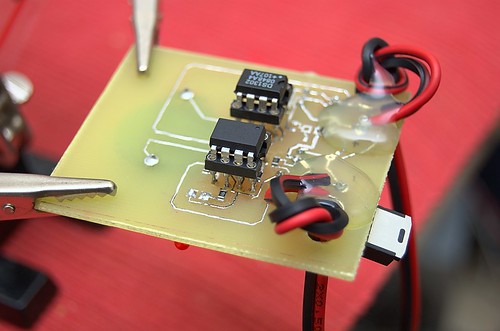Then you can see 2 capacitors near crystal, they are compensation capacitors for that crystal. DS1302 rtc clock is designed for 6pf load crystals, but I have only 12pf load crystal, that's why I place another 6pf of capacitors in parallel with crystal.
There is a led indicating when lights are on or off without pwm.
I have printed this pcb mirrored that's why I placed attiny25 and ds1302 on copper side of pcb along with smd resistors :)
Firmware code is available in my repository: code.avrnoob.com/litmer
Compilled firmware size is 2046 bytes and attiny25 have 2048 bytes of flash, so I have 2 spare bytes for some futures to add :) Actually there are still some bugs, but there are no place to fix them. Some bugs already fixed in repository.
And here are the pictures:







